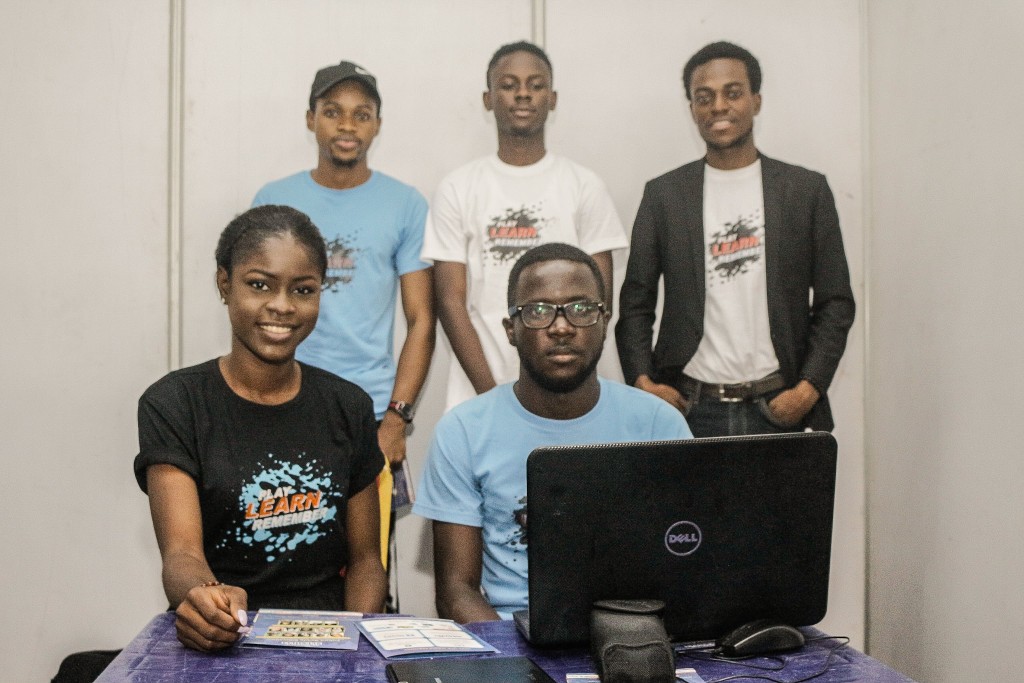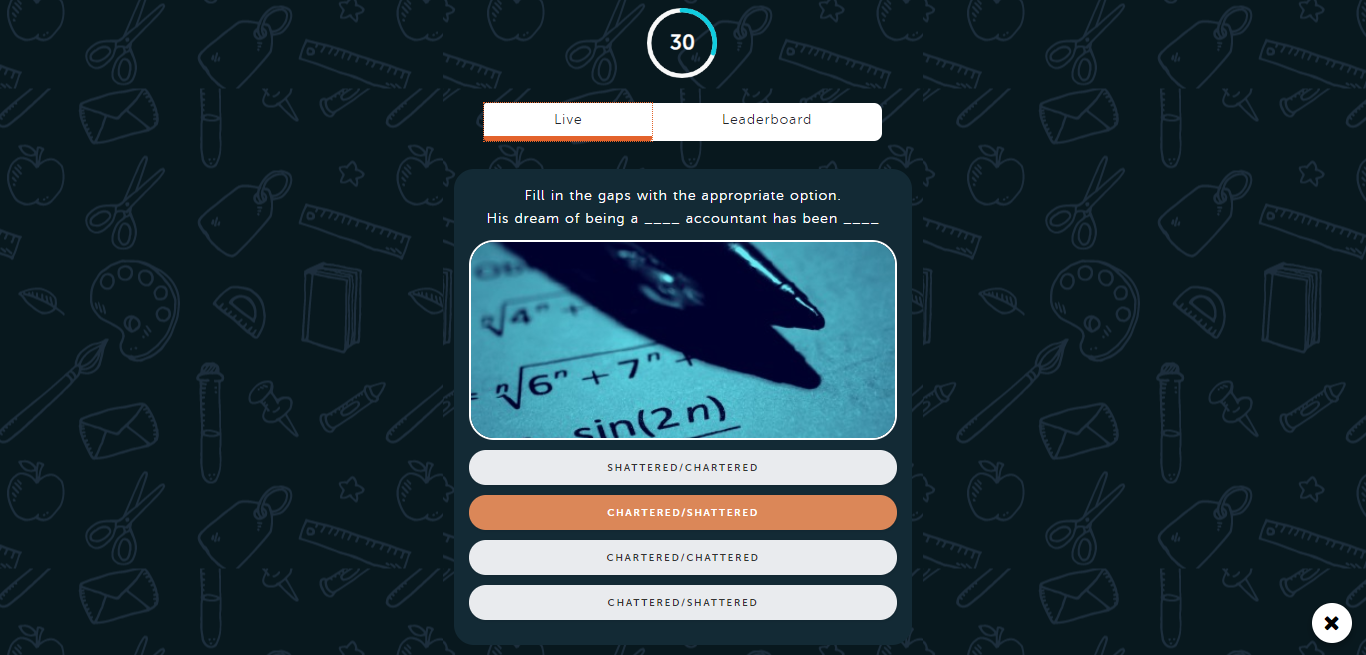Education and learning in Nigeria have stalled to a large extent. What we have now, in most parts, involves standardised curriculums, students cramming, and a rigid system void of innovation.
It’s not only in Nigeria that learning has stalled. Other countries, especially developing countries, struggle with this problem. That said, some educators are optimistic new technologies like AI, machine learning, VR, and AR can change this situation. This, coupled with the rise of edtech startups using these technologies, promises hope for the Nigerian edtech space.
For these startups, the target market in the education system is still very much the K-12 (pre-university) segment. And the solutions they deploy centre around the gamification of learning.
Why is this so? Gamification’s potential to foster motivation, competition, and collaboration among students is growing in popularity.
Generally, games are known to incite motivation and engagement among players. The thesis of gamification of learning, thus, is to incorporate game mechanics to motivate students.
So at the core of all this is motivation, in that it influences the time a student spends engaged in learning, as well as the effort put in.
For Tade Samson, this is what he hopes to achieve for K-12 students with his edtech startup, Quizac.
Getting started
“We have thousands of learning platforms including the traditional method of learning by reading textbooks. How long can an average student keep doing all the learning with their full attention?” he asks.
“15 to 30 minutes,” he answers.
Samson says the problem faced most by students is not one of the learning resources. But rather, the attention and motivation to keep learning with the utmost retention. He goes on to compare how students learn to how they watch cartoons or shows on TV.
“It’s difficult for a small child who is big on watching Tom and Jerry to find happiness in reciting things like A for Apple in the classroom,” Samson says.
Trying to find a solution, he and three of his friends founded Quizac.

Tobi Awogbemi, Hussein Alayo, Babatunde Caleb, and Tade Samson met as students in the Ladoke Akintola University of Technology. Upon graduation, their journey as co-founders started during their service year when they had a gig for a software company in Abuja.
In 2016, they moved to Lagos and it wasn’t until two years later they founded the edtech startup.
The value proposition of Quizac is this: using peer-to-peer matching and intrinsic and extrinsic rewards, it builds a gaming experience to help students learn better. Samson says the intrinsic rewards can be anything from points to leaderboards. For extrinsic ones, airtime or mobile phones suffice.
How Quizac works
Samson tells Techpoint that a game of Quizac is a set of questions about a topic. These curriculum-based questions are important for the edtech startup to measure students’ performance.
After studying a topic, students can select a QuestionSet on that topic and practice alone. If they wish to engage with others, they can challenge a friend or create a group game where a maximum of 100 students can play at the same time.
Questions to play are fetched based on the mastery level of the players. Also, speed is the major determinant of how students are awarded points if a question gets answered. Once 300 points are accumulated, they get converted to a gem which, when used, gives rewards ranging from airtime to gadgets.
“In fact, it’s such fun that with a single gem, a student can spin a fortune wheel to win a prize that would otherwise require up to 100 gems to get,” Samson says.
https://www.youtube.com/watch?v=amMHcp-ynj8.
According to the CEO, feedback of students is key for Quizac. By analysing students’ responses to each question, Samson says the startup provides “mastery reporting on curriculum topics and subjects.”
“In the local context, we’ve got very few players doing the same thing as Quizac. We’ve got a deep technology advantage that enables us to know what a student should be learning and what they shouldn’t bother with at all. This is possible because of how we tweaked the SuperMemo2 model into Quizac.”
The SuperMemo2 model, Samson tells us, is a learning model used by edtech startups like Duolingo. What it does, in short, is to predict the outcome of a students’ long-term learning.
Also, Samson says what sets Quizac apart from its competitors is that it lets users create their own games.
“This doesn’t only give us the edge in terms of scaling. It also creates an extra source of income for students and subject experts. If students find it useful, they can buy with their tickets and the owner gets paid.”
A business model with parents in mind
The tickets are in-app currencies in the Quizac site or application. For every game played on Quizac, five tickets are deducted. The tickets range from ₦1,200 ($3.11) per month to ₦10,000 ($25.90) per year.
At first, when Quizac launched in early 2019, its target customers were the students. This is usually the case for edtech startups in Nigeria. Most are consumer-facing while neglecting other stakeholders like teachers and parents.
While they launched with students at the core of their business model, they soon found out that their real customers were parents.
“We noticed a pattern where most students use up their tickets and then go inactive. Then they become active when a free ticket offer becomes available. We knew right away that parents were the customers, not the students.”
Going back to the drawing board, they drew up a plan on how to involve parents. “After all, parents are the ones with the pain of ensuring their children are learning,” Samson says.
A business-to-business model was the go-to strategy.
So they started building ‘Quizac for organisations’ with schools in mind. With this, a teacher could divide the class, create a group game and watch each team collaborate with full engagement.

Also during holidays or weekends, a teacher could create a multiplayer game that lasts over the weekend and share the game code with students.
“With schools as distribution partners, it’s easier for parents to understand the role of Quizac and make subscriptions on behalf of their kids.”
So far, the startup boasts of about 7,000 users of which 35% came two weeks after its pilot. According to Samson, the startup has had to relax its numbers to focus on achieving profitability. And unlike the initial B2C model it employed, he believes Quizac’s B2B model will get the startup to the promised land.
“Quizac isn’t profitable yet. However, with our partnership with schools as a channel of distribution, we are assured of hitting that number with little marketing effort.”
As regards to revenue, the startup managed to accumulate over ₦50,000 ($129.47) in its first eight months. But since it started selling to schools and parents two months ago, it has netted over ₦120,000 ($310.57) in revenue.
All these, according to Samson, have been done without any venture capital. The founder says Quizac had a chance to raise from angel investors but the deal was called off, and now, the startup has resorted to using personal funds. “But with the height we’ve been able to attain, I can say we are open for dialogue with investors,” he says enthusiastically.
Dealing with challenges and thoughts on the industry
One of the main challenges faced by most edtech platforms has to do with Internet connectivity and Quizac is not an exception.
Samson says the startup is trying to deal with this problem by making questions available for download.
“So students can still have access and practice with Quizac games with bad Internet connectivity or none at all. However, users without connectivity won’t be able to take part in real-time multiplayer games,” he says.
Another challenge is one where users or contributors create their own games or quizzes. There’s a tendency for a student lacking in a subject to create a subpar quiz on the said subject.
To solve this, games created by students pass through experts who vote on whether the game aligns with the curriculum it was created for or not. Also, students themselves can review a game after playing and games are pulled down when their review scores drop below a level.
Challenges aside, what does the future look like for Quizac?
“We have a plan to put Quizac in the area of voice technology. This would make Quizac even more accessible as an interactive skill app on a device like Alexa or Google Home in the classroom where phone use is restricted,” Samson says.
The confidence in Samson’s projection is one that stems from the current happenings in the edtech space. In the last few months, some startups have raised funding, most notably, uLesson’s fintech-worthy sum.
For Samson, this is good news for the space.
“While the industry is still growing compared to other sectors, I feel it’s a blessing to also have veterans like Sim joining the industry. It gives us more visibility than ever before.”











